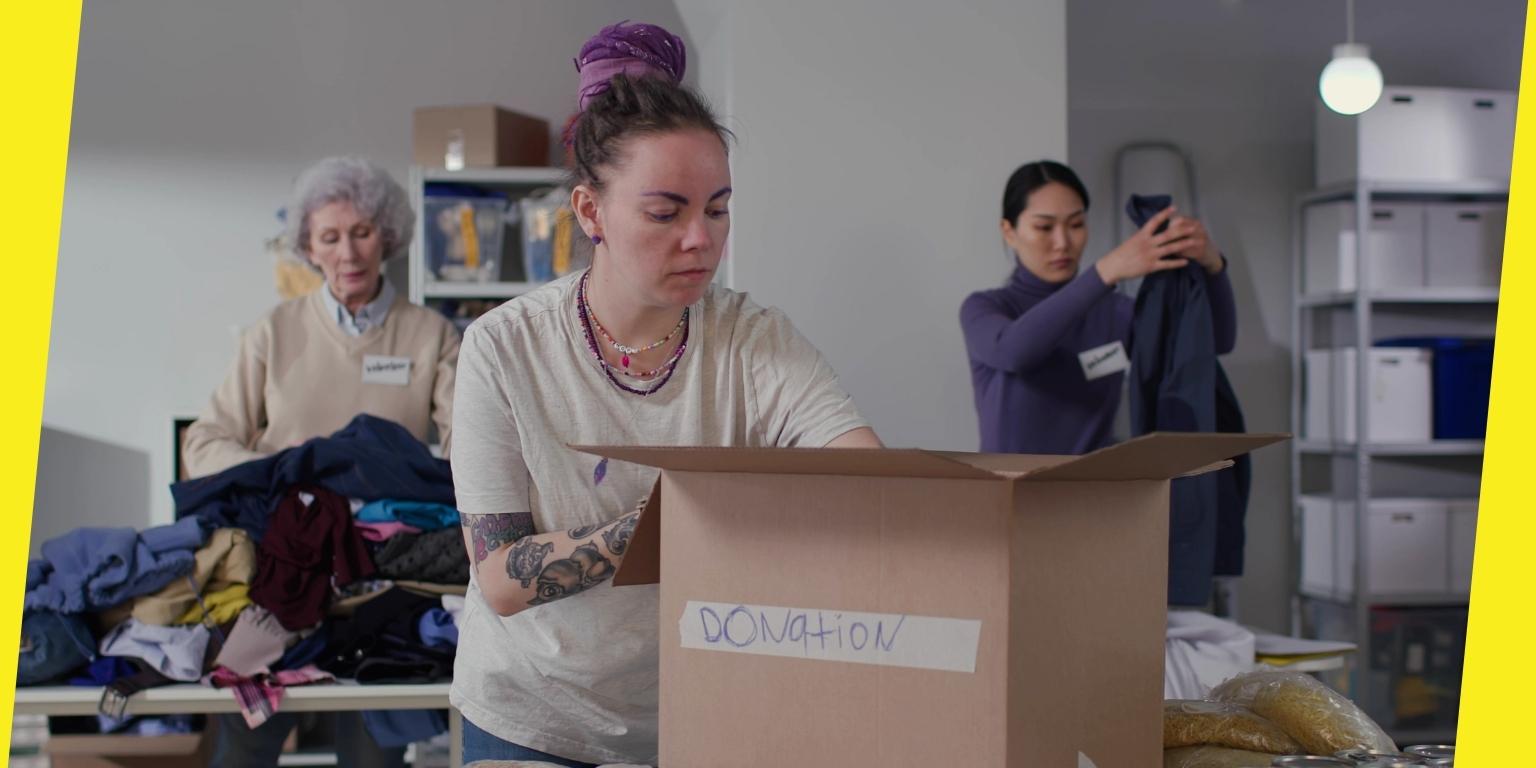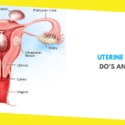Careers In Addiction Recovery: Finding Purpose In Your Post-Addiction Journey

When you’re in the throes of addiction, it can feel like there’s no way out. But recovery is possible and can be a rewarding experience once you achieve and maintain it. Not only will you be able to live a healthier, happier life, but you may also find a new sense of life’s meaning in your post-addiction journey.
One way of finding purpose in your post-addiction journey is by pursuing a career in addiction recovery. It can be a great way to help others struggling with addiction and make a difference in your community. You can take several different career paths in addiction recovery, so you’re sure to find one that’s a good fit for you. Or you may also click here to explore opportunities.
This article will explore life after addiction, the importance of employment during recovery, considerations in job hunting, and several career paths you can take (and must avoid) during recovery.
Life After Addiction
The addiction recovery process can be challenging to navigate. You may sometimes feel lost or confused and may not know where to turn for help and support. The road to regaining your life and recovery can be challenging and full of ups and downs, but it’s vital to keep moving forward.
While you might not be sure about your next steps, there are many ways to find meaning in your life after addiction. It’s possible that finding a new career path is the best option for you.
However, many who have battled substance use disorders (SUDs) struggle to get back into the workforce after treatment due to stigma and social discrimination. Yet it’s still possible to start a new career after addiction. In fact, many people in recovery say that finding a meaningful job is one of the most important things they do to stay on track.
Importance Of Work During Recovery
According to the National Institute of Studies (NIH), recovering from substance use disorders is more manageable when people have a job since it gives them purpose, structure, and a sense of belonging. Work can also help people with substance use disorders stay sober by giving them a reason to get up with motivation in the morning and something positive to focus their energy on.
The importance of work during recovery can’t be understated. It provides meaning and helps people with SUDs feel like they have a productive role in society. It also allows them to gain new skills they can use later in life.
Studies also found that people who work while they’re in recovery have a lower risk of relapse. A recent report by the Substance Abuse and Mental Health Services Administration found that people with SUDs who were employed during recovery had better long-term outcomes than those who were unemployed or employed part-time. They also demonstrated the following:
- Lower relapse rate
- Reduced criminal activity
- Improved self-control through abstinence
- Higher adherence to parole regulations
- Improved quality of life
- Higher success rates of rejoining the community
Hence, people in their post-addiction journey should consider looking for a job.

Finding The Right Job In Recovery
Finding the right job in recovery can be challenging, especially if you’re not sure what type of work to look for. To help you out, here are six practical considerations you should keep in mind:
1. Consider Your Strengths
Finding a job in recovery is more than just getting out of your pj’s and putting on your working clothes. It’s about finding something to help you grow, improve your self-esteem, and take control of your life.
If you’re not sure what kind of work to look for, start by considering what skills and abilities you have. What do you like doing? What are your strengths? If you’re unsure, it’s best to take some time to reflect on what makes you feel good about yourself.
Maybe it’s being creative or making people laugh. Perhaps it’s fixing items or organizing projects. Whatever it is, think about how those strengths can translate into a career that will keep you happy and productive over the long term.
2. Use Programs & Services Available To You
Most rehab programs offer various services to help you adjust to life and rejoin society after rehab. Taking advantage of these programs is essential because they help you identify opportunities and avoid pitfalls that could pull you back down the path of substance misuse.
Some common services include job search assistance, referrals, and transportation assistance. If you’re having trouble finding work after rehab or need help with any other aspect of your life, don’t hesitate to ask for assistance from the people who care about your recovery the most—your counselors and case managers.
3. Maximize Online Resources
Another practical thing you can do when finding jobs after rehab is to take advantage of all the online resources available. Many resources online are dedicated to helping people find jobs after rehab. These resources can help you search for jobs, network with employers or others in recovery, and even find housing.
You can check online resources like SAMHSA and other organizations dedicated to helping people in recovery. You can also search for “jobs after rehab” or visit your state government’s website.
4. Utilize Your Support Group & Personal Network
You shouldn’t underestimate the power of your support group and personal network. You may not realize how many people in your life want to help you get back on your feet after rehab. Friends, family members, and even old coworkers can all be valuable resources when looking for jobs during the recovery. Don’t be afraid to seek help from them during this stage of your recovery.
5. Consider Taking Voluntary Positions
If you’re having difficulty finding a job after rehab, consider taking voluntary positions. Voluntary work can be an avenue to help you develop new skills, network with potential employers, and make a difference in your community. Many organizations offer voluntary positions, so you should have no trouble finding one that’s a good fit for you.
6. Don’t Forget About Your Legal Rights
The Americans with Disabilities Act (ADA) acknowledges substance use disorder as a disability, meaning employers cannot discriminate against people in recovery when hiring workers. This Act also requires employers to make reasonable accommodations for people in recovery, such as providing time off for treatment or allowing flexible work schedules.
Career Paths You Can Take
Now that you know the steps you can take to look for a job, what type of job should you look for? What are the best career paths for people in recovery? Here are a few ideas:
1. Social Work
If your passion is helping people, a career in social work is a perfect fit for you. Social workers help people deal with various social issues, including family issues, mental health, and addiction. They provide support and resources to help people get through tough times.
Many social workers specialize in addiction and recovery, so this is a great career path for people in recovery. Social work can be a gratifying career, but it can also be challenging. If you’re up for the challenge and giving back, a job in social work may be right for you.
2. Wellness Coaching
If you’re interested in coaching and helping others achieve their wellness goals, a career as a wellness coach may be a good fit for you. Wellness coaches work with people to improve their overall health and well-being. They provide support and resources to help people make lifestyle changes to improve their physical or mental health. Many wellness coaches also specialize in addiction and recovery, so this is a great career path for people in recovery.
3. Personal Training
Another excellent career option for people in recovery is personal training. Personal trainers help people achieve their fitness goals. You may take certifications from different organizations to help you become a certified personal trainer.
If your strength and passion are in fitness, working as a personal trainer is a great way to help others achieve their goals while also helping yourself during recovery.
4. Art Therapist
Art therapy uses art to help patients heal from trauma, manage stress, and cope with other mental health issues. If you’re interested in helping others through art, a career in art therapy may be a good fit.
Being an art therapist doesn’t require you to be a renowned artist. All you need is talent and passion. If you’re interested in a career combining art and helping others, being an art therapist is a great career path.
5. Outdoor & Nature-Related Jobs
Fresh air and nature connection have been shown to help with addiction and recovery. Many outdoor-related jobs may be a good fit for you if you love being outdoors. These jobs allow you to be outside while also helping to protect and preserve natural resources. Here are a few career ideas:
- Hiking guide: Help others enjoy the wonders of nature as a hiking guide while gaining the benefits of nature connection yourself.
- Parks & Recreation Worker: Many jobs are available in the parks and recreation departments. You could work as a park ranger, camp counselor, or maintenance worker.
- Farmers’ Market Vendor: Sell fresh produce and other goods at a farmers’ market.
- Gardener & Landscaper: Help others create beautiful outdoor spaces as a gardener or landscaper.
- Dog walker: Get some exercise and fresh air while walking dogs.
6. Teaching Jobs
Some people take second chances very seriously, and teaching can be a great way to give back. People who have been through recovery can relate to students who may be going through similar experiences.
If you’re interested in teaching, there are many different options available. You could work as a teacher in a traditional school setting or as a tutor or mentor. You could also teach local classes at a community center or online.
7. Going Back To Schooling
Lastly, if you’re interested in a career change, returning to school may be a good option. You can find programs offering certification or degree programs in many fields. You may even be able to get financial aid to help you pay for school.
Remember that it’s never too late to make a change, and schooling can help you reach your goals.
You may have gone through bumpy rides and hard times, but you’re not alone. Many people have been through recovery and have led successful lives. And education can help you get there.
Jobs To Avoid
Although working while recovering from addiction can be very rewarding, there are some jobs you should avoid. Here are a few examples:
1. Working In A Bar
Bartending can be an exciting job, but it’s not a good idea for people in recovery. If you work in a bar, you’ll be around alcohol all day and may be tempted to drink. If you’re not comfortable being around alcohol, it’s best to avoid places where you’re likely to be tempted to use substances or alcohol.
2. Illegal Activities
If you’ve been involved in illegal activities in the past, it’s best to avoid jobs that could put you at risk of getting in trouble with the law again. Avoid jobs that involve selling drugs or working in an illegal industry. These jobs can be dangerous and lead to relapse.
The ‘active addiction mindset’ can be hard to shake because it keeps you tethered to the thought of getting things easier by cutting corners or taking shortcuts. So, it’s best to prevent illegal jobs for the rest of your life.
3. Stressful Jobs
Some jobs’ natures are just more stressful than others. If you’re in recovery, it’s best to avoid high-stress work with a lot of drama. Studies show that stress can lead to relapse, so it’s crucial to find a manageable job that won’t put too much stress on your recovery.
You may also want to avoid jobs requiring you to work long hours or unpredictable schedules. These jobs can be hard to manage while you’re in recovery.
Final Thoughts
Life after addiction can be challenging, but it’s also full of opportunity. If you’re in recovery, various career types may be a good fit. Using this guide, you should be able to identify some potential careers that will help you get back on track and live a better life while serving a purpose.
It’s important to remember that you’re not alone on this journey. Many people have been through addiction and have gone on to lead successful lives. With hard work and determination, you can too.
Most Inside
Most Inside offers high-quality recommendations and valuable updates to enhance all aspects of your life, providing premium guidance and enriching experiences.




